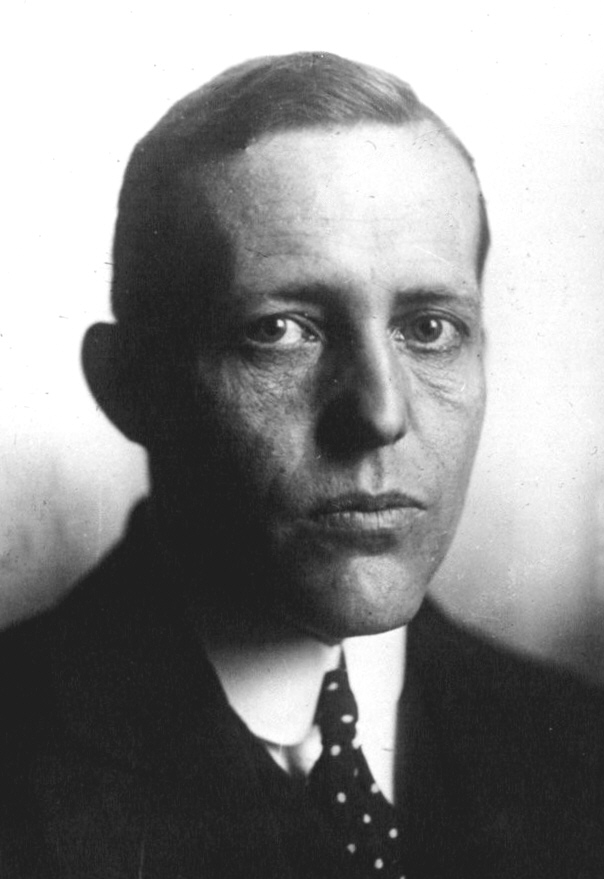
Lutz Graf Schwerin von Krosigk
Johann Ludwig "Lutz" Graf[c] Schwerin von[d] Krosigk (Born Johann Ludwig von Krosigk; 22 August 1887 – 4 March 1977) was a German senior government official who served as the minister of finance of Germany from 1932 to 1945 and de facto chancellor of Germany during May 1945.
In this German name, the surname is von Krosigk, not Krosigk.
Lutz Graf Schwerin von Krosigk
Office abolished
Himself
Office abolished
Himself
Office abolished
4 March 1977 (aged 89)
Essen, North Rhine-Westphalia, West Germany
Nazi Party (1937–1945)
Beatrix von Storch (granddaughter)
9
Erich Adolf Wilhelm (father)
Luise Rosalie Ludmilla (mother)
Officer, jurist, politician
Iron Cross, 1st class
A non-partisan conservative, he was appointed to the post of Minister of Finance by Franz von Papen in 1932. At the request of President Paul von Hindenburg, he continued in that office under Kurt von Schleicher and Adolf Hitler. He and his ministry were involved in the persecution of German and European Jews, including by stealing their property, and laundering money. During May 1945, after the suicides of Hitler and his designated successor Joseph Goebbels, he also served as "Leading Minister" of the short-lived Flensburg government of President Karl Dönitz. Schwerin von Krosigk also held the essentially nominal offices of Foreign Minister and Finance Minister in the provisional government that controlled only a small, progressively shrinking portion of Germany, due to the rapid advance of the Allied forces who finally dissolved it and arrested its members.
Besides Adolf Hitler himself, Schwerin von Krosigk was one of the few members of the Third Reich's cabinet (along with Wilhelm Frick and Franz Seldte) to serve continuously from Hitler's appointment as Chancellor until his death. By accepting the Golden Party Badge personally bestowed by Adolf Hitler, given for honour on 30 January 1937, he automatically became a member of the Nazi Party (NSDAP) with membership number 3,805,231. He also joined the Academy for German Law in 1937.
At the 1949 Ministries Trial, he was convicted of laundering property stolen from Nazi victims and financing the concentration camps and sentenced to 10 years in prison; his sentence was commuted in 1951. He later worked as an author and publicist. He died on 4 March 1977.
Early life and education[edit]
Born as Johann Ludwig von Krosigk on 22 August 1887 into a family of traditional Lutheran Protestants in Rathmannsdorf in the Duchy of Anhalt of the German Empire, his father Erich Adolf Wilhelm was a member of an old noble but untitled family of Anhalt and his mother Luise Rosalie Friederike Julie Emma Ludmilla was born a countess of the Schwerin family. In 1925 he was adopted by Alfred Wilhelm Detlof Graf von Schwerin, and promoted himself to a count, taking the name Johann Ludwig Graf Schwerin von Krosigk.[2]
Krosigk studied law and political science at Halle and Lausanne and then, as a Rhodes Scholar, at Oriel College, Oxford.
During World War I, Krosigk served in the German Army, attaining the rank of Lieutenant, and was awarded the Iron Cross, 1st class. On 7 February 1918, during the war, he married a baroness, Ehrengard Freiin von Plettenberg (1895–1979), with whom he had four sons and five daughters. In 1922, he became an Oberregierungsrat (senior government official) and in 1929, a ministerial director and head of the budget department at the finance ministry. In 1931, he joined the department of reparations payments, formed to deal with the reparations Germany still owed the Allied Powers after the Great War.